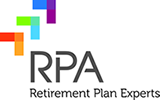Deposit Rules for 401(k) Plans
One of the most common mistakes made by 401(k) plan sponsors is failure to deposit participant contributions (i.e. 401(k) deferrals/Roth contributions) and loan payments in a timely manner. Having said that, it is worthwhile reviewing the rules and consequences of making late deposits.
What are the rules?
In general, the Department of Labor (DOL) requires that participant contributions and loan payments be deposited as soon as the amounts can be reasonably segregated from the general assets of the employer. This is because the amounts are considered to become plan assets at this point in time.
Under examinations, the DOL also reviews deposits for consistency to determine whether contributions were funded in a timely manner.
Note there is an exception for small plans (generally, plans with less than 100 participants).
How are the rules different for small plans?
In January 2010, the DOL issued a final rule regarding funding of employee contributions providing a safe harbor provision for employers of small plans.
For these plan sponsors, the final rule provides that participant contributions and loan payments will be deemed to have been funded in a timely manner provided that the contributions are deposited within seven business days following the date in which the amounts were withheld.
What are the rules for large plans?
Since the DOL did not extend this safe harbor relief to large plans, these plan sponsors must abide by the general rule of making the deposits as soon as the amounts withheld can be reasonably segregated from the general assets of the employer.
As a result, we typically recommend these employers make deposits within three business days.
What are the consequences of making late deposits?
First, the employer has engaged in a prohibited transaction with the plan because the employer had “use” of plan assets.
- The late deposit must be reported on Form 5500
- The employer must pay a 15% excise tax on the “amount involved” by filing Form 5330
- Participants must be credited with lost earnings (the DOL has an online calculator that may be used for this purpose)
Is the employer required to file under the DOL’s Voluntary Fiduciary Correction Program?
No. Filing under VFCP is not required. Nevertheless, employers may want to file under this program to obtain relief from the DOL for penalties that may otherwise be imposed and agreement not to investigate the plan fiduciaries for failure to deposit the amounts in a timely manner.
If you have any questions regarding the deposit rules or would like to learn more, please contact us.

